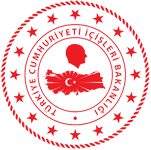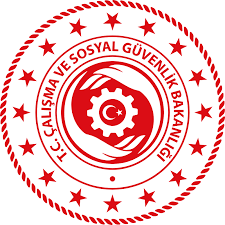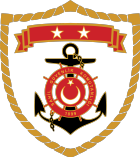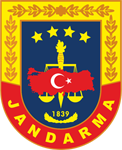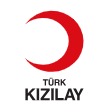

LEGISLATION
Migration Strategy Document
Migration Working Group, which was established under asylum, Migration and Protection of Borders Task Force with the aim of ensuring Turkey develops a policy in the field of migration in the EU pre-accession process in line with EU policies, has completed the works executed together with the representatives from Turkish General Staff, Ministry of Foreign Affairs, Undersecretariat of Customs, General Directorate of Security, General Commandership of Gendarmerie and Cost Guard Command, and submitted to the Task Force. The evaluations adopted and finalised by the Task Force are as follows.
A. CURRENT SITUATION IN MIGRATION MANAGEMENT
1. In Turkey, following legal arrangements have been worked on in harmony with common migration policy of EU and efforts of the EU towards constituting an area of security, justice and freedom. Human smuggling and human trafficking has been recognised as a crime under Turkish Criminal Code (TCK 201/a ve b) with the adoption of Law No. 4771 on Amending Various Laws (Official Gazette of 09 August 2002 No. 24841), and severe punishments have been introduced for the offenders of the said crime. A draft amendment introducing deterrent penalties has been prepared under articles 33-35 of Passport Law. Law of 27.02.2003 No. 4817 drafted by Ministry of Labour and Social Security and governing the Working Permits of the Foreigners in order to avoid informal employment was adopted by the parliament and published in the Official Gazette of 6 March 2003. The by-laws of the law have been drafted, and the mentioned law was effective as of 6 September 2003.
It started to be implemented on 02.10.2003. Law Proposal on Amending Turkish Citizenship Law No. 403 was published in the Official Gazette of 4 June 2003 and became effective. Law No. 5683 on Residence and Travels of Foreigners in Turkey and draft Law amending this law No. 4360 introduces some new implementations, in terms of harmonisation with EU Acquis. As for drafting Foreigners Reception and Removal Centers as well as Removal By-laws, efforts towards harmonising the relevant procedures with EU procedures and compiling relevant legislation and practices of EU countries.
United Nations Convention against Transnational Organized Crimes and its supplementing Protocol (1- Protocol for avoiding, stopping and punishing human trafficking, particularly trafficking of women and children,
2- Protocol against the Smuggling of Migrants by Land, Sea and Air) was signed on 13 December 2000, and mentioned convention was adopted in the parliament, together with its supplementing protocols, and become effective once published in the Official Gazette of 19.03.2003 No. 25052.
a) International cooperation work under migration management: Turkey has participated effectively in the work jointly executed with international organisations serving in Migration Management. In this context, Turkey; is an active member of some international organisations and working groups such as Budapest Group, International Border Police Conferences, Cırefı (EU- Center for Information Exchange on Illegal Migration and Frontier Infringements), SECI Working Groups, Sustainability Pact – Human Trafficking Task Force, AGİT Human Trafficking Action Plan.
b) Turkey will put into implementation, in medium-term, all those to be adopted in pre-accession period under EU Acquis related to admission, readmission, removal etc. within the context of illegal migration.
Turkey pursues the policy of signing readmission agreement particularly with source countries and then incrementally with transit and target countries, and waits conclusion of the readmission agreement proposals made with some countries in 2001 and 2002. In this scope, Turkey aims at signing readmission agreements with its neighbour countries, those to the west and left border, and other source countries.
c) As promised in National Program, Turkey has completed some part of the negotiations aiming at harmonisation with EU Negative Visa list, and introduced visa requirement for the nationals of many countries. Full harmonisation is aimed to be achieved at the end of 2004.
d) Intensive training programs have been held in recent years in Turkey for training the personnel assigned at border gates regarding forgery of documents and checking the documents. Likewise, law enforcement forces were provided with training on fight against illegal migration and human smuggling. These training programs continue being held both in the institutions in Turkey and through international cooperation.
e) Some measures were recently taken, within the framework of illegal migration, in border gates and green and blue borders. In this scope, number of the relevant personnel was increased, new equipment was added, some check points were established in order to follow the movements from east to the west, and contact points, serving for 24 hours a day, were established in order to monitor the movements of the vessels at sea. On the other hand, information exchange and notification mechanism is effectively working through both Interpol CIREFI channels.
f) Turkey has published Integrated Border Management Strategy Document which would contribute to increasing efficient control and security at the border gates with the purpose of preventing illegal migration. In line with the Strategy Document, Integrated Border Management Project, supported by EU, is envisaged to start in October 2003.
B. PRIORITIES
Migration policy of the European Union includes on one hand, fight against illegal migration, and on the other hand regulating legal migration with various measures. First priority of EU migration policy is to ensure auditing legal entry ways to EU. In this framework, it is aimed at regulating the legal status of those coming to the EU countries with the aim of employment, education and family reunion, determining the requirements for entering into and residing in EU and rights of these persons. Regulating legal status of the persons having resided in EU countries for a long time and ensuring the integration of them with the society they live in are among the priorities of EU migration policy. This policy aims at restructuring EU as an area of security, justice and freedom. Integrated management of the borders, which is another priority of EU Migration policy, has been designed in line with policy of fight against illegal migration and is being improved accordingly. Free movement of persons, one of the most important indicators and rights of the concepts of EU integration and EU citizenship, resulted in removing the inner borders among the countries over time. On the other hand, it came with a requirement to improvement of the measures taken in parallel. In Tampere and Sevilla Summits of the EU, adoption of common policies and administrative structures in the field of legal and illegal migration management were included in legal texts, and it was decided that the mentioned acquis and policies are adopted by the candidate countries.
ın addition to being a candidate country, Turkey is among the countries which are affected by the EU migration policies due to its geographical position. Thus, it should enhance its legal and administrative capacity in the field of migration management. Located at one of the important crossroads of global and regional illegal migration routes, Turkey works on; harmonisation of legal migration management and practices with EU Acquis, ensuring a mechanism at EU Standards through completing necessary procedures and structures, issuing deterrent regulations for fight against illegal migration, and meeting humanitarian needs of the illegal foreigners starting from their arrest until they are deported. In this context, a comprehensive approach should be adopted towards the concept of migration, as is the case in European Union. Migration policy starts with the measures taken and checks before the migrants enter into the country. This policy continues with the procedures performed at the border gates, i.e., who are admitted to the country, which is followed by removal of the foreigners, illegally existent in the country (For instance, asylum seekers whose application for asylum have been rejected and illegal migrants). With migration policy and the policies applied to the legal migrants in the country, one step further is taken with the rights and status granted to them and the integration of the migrants. Finally, the circle of migration management is completed with the fight against illegal migration.
All policies and practices within this framework should be considered as a whole and made compliant with each other. In parallel with the issues stated above, New Accession partnership Document adopted on 19 May 2003 and National Program published in the repeated Official Gazette of 24 July 2003 No. 25178 includes adoption and implementation of EU Acquis and best practices, as a priority, including the admission, readmission and removal practices in Turkey with regard to the prevention of illegal migration.
C. ALIGNMENT OF THE LEGISLATION AND STRENGTHENING ADMINISTRATIVE CAPACITY
In the light of the priorities listed above, what should be done in Turkey in the field of migration management in pre-accession process with the aim of harmonisation with EU Acquis and practices can be listed as follows:
1) The status of those coming to Turkey for studying, employment and family reunion and relevant procedures should be arrange, and their integration with the society should be ensured. Firstly, the legal structure should be improved in some fields such as admission of the foreigners to the country, their residence in the country, status granted to the migrants, granting provisional residence permit, removal of the foreigners illegally residing in our country, adaptation of the migrants to the country. In this framework, necessary procedures should be prepared and existing procedures should be combined.
2) Readmission agreements should continue to be executed with third countries and implemented with the aim of strengthening fight against illegal migration. Foreigners Reception and Accommodation Centers should be established with a view to meeting humanitarian needs of the illegal foreigners until they are deported and ensuring their repatriation.
3) Since it is materially hard for Turkey to meet the migration wave on its own due to its regional position, EU Bodies and member countries should share the financial burden of Turkey regarding construction and operation of Foreigners Reception and Accommodation Centers, as is the case in every step of the illegal migration.
4) Removal procedure applied to illegal foreigners should be simplified and the administrative capacity should be strengthened. In order to strengthen the administrative capacity regarding migration, existing unit should be turned into a unit that; evaluates and finalises the applications of those who want to come to Turkey for working, studying and family reunion through legal ways or those of the migrants legally residing in Turkey, determines their residence and similar status, withdraws the granted status, when necessary, and takes removal decisions, develops and implements repatriation programs for those who want to go back their country voluntarily, and shape the policies regarding integration of migrants into the society, collects and evaluates data related to migration, and that can share information in international field. With this respect, current structure should be improved or restructured under the roof of the institution that current expertise unit is affiliated to.
5) Effort should be taken with the aim of establishing an “Evaluation Board” which is composed of the relevant experts with the aim of resolution of the possible issues at administrative level regarding migration management, which are important in terms of ensuring administrative audit in migration management, protection of the rights of the foreigners, taking decisions which are hard to evaluate, ensuring coordination among institutions in fight against illegal migration and human trafficking and developing policies.
6) These efforts should be supported through taking parallel steps in the fields of visa, border management and asylum.
7) Contributions by international organisations, non-governmental organisations and academic circles should be ensured efforts towards training and informing public opinion executed within the framework of fight against human trafficking and smuggling.
8) Given that the EU has no common migration policy yet and the relevant principles and implementations have a changing and renewing dynamic depending on wars, hot conflicts, natural disasters, political, economic and social developments, migration policy should be reviewed, when necessary, according to the international developments and the trend in EU affairs.


